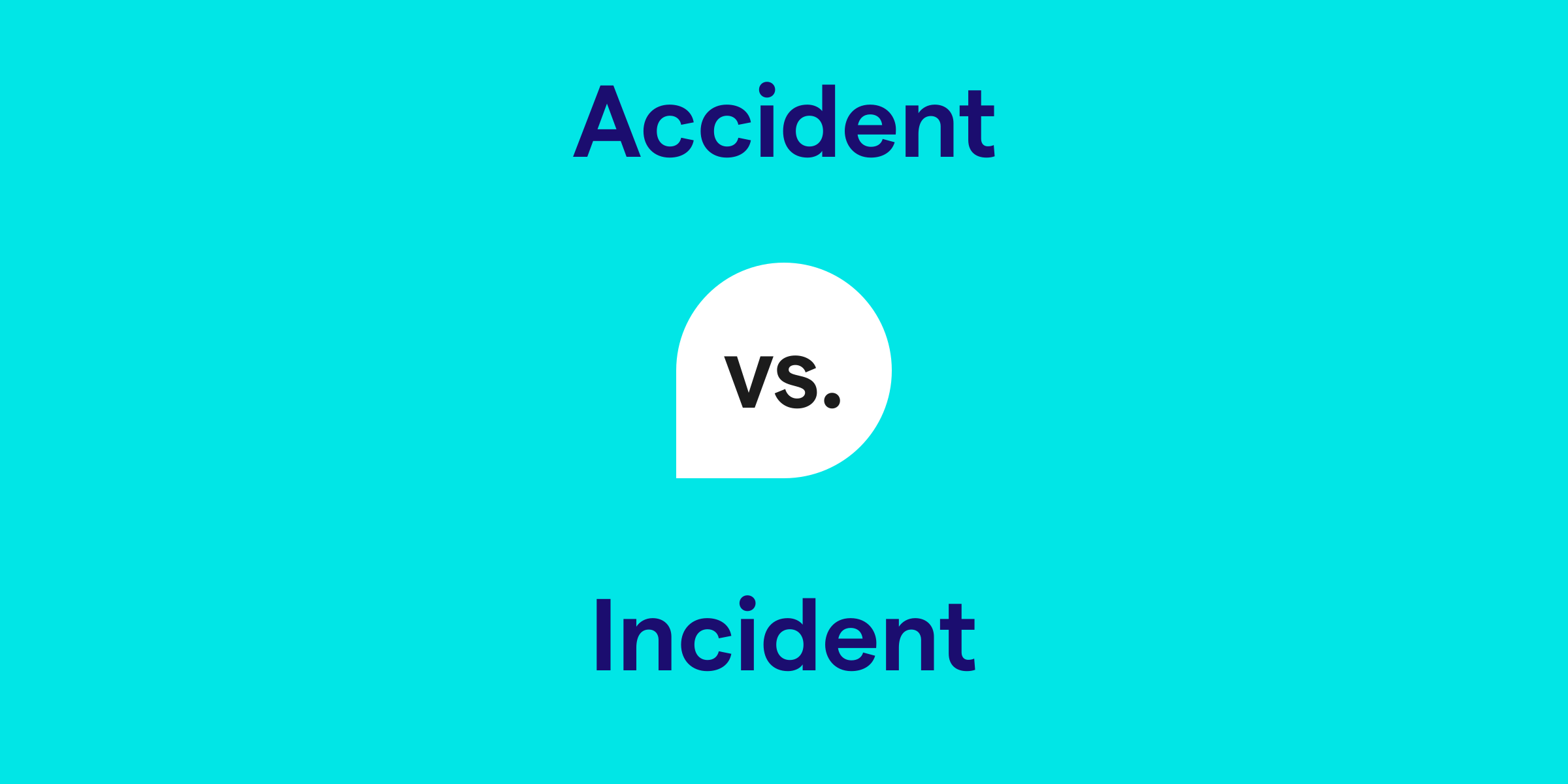Accident vs. Incident: What's the Difference?
The terms accident and incident refer to unexpected events, often leading to disruption or harm. An accident is specifically an unplanned event that results in injury, damage, or loss, usually suggesting a sense of randomness and lack of intent. On the other hand, an incident is a broader term encompassing all kinds of events or occurrences, which might not necessarily involve injury or damage, and can be intentional or unintentional.

How do you use the word accident in a sentence?
The word accident should be used when describing a situation that occurred unexpectedly and led to harmful consequences like damage or injury. It often carries an implication that the event was unforeseen, undesired, and usually unavoidable through normal precautions. It is frequently used in the context of traffic collisions, workplace injuries, or other scenarios where harm or loss occurs without malicious intent.
Examples of accident in a sentence
- She broke her arm in a skiing accident last winter.
- The factory has implemented new safety guidelines to prevent future accidents.
- The traffic report mentioned several accidents due to the icy roads.
How do you use the word incident in a sentence?
The term incident is applicable to a wide range of situations that describe any event, especially one that is unusual or significant. It doesn't necessarily imply that any harm was done but indicates a notable occurrence. Incidents may be used in reference to altercations, malfunctions, or deviations from normal operations, and can be planned or unplanned.
Examples of incident in a sentence
- The organization held a debrief to discuss the incident and its impact on operations.
- There was a minor security incident at the concert, but no one was harmed.
- An unexpected incident during the experiment led the researchers to a breakthrough discovery.
Accident and incident definitions, parts of speech, and pronunciation
Accident definition:
An accident is an unfortunate event resulting from carelessness, ignorance, or a combination of causes, leading to physical injury or damage to property.
Accident parts of speech:
Accident pronunciation:
Accident is pronounced æk-sɪ-dənt, with the emphasis on the first syllable.
Incident definition:
An incident is an occurrence or event, particularly one that is significant and disruptive, which may or may not result in harm or damage.
Incident parts of speech:
Incident pronunciation:
Incident is pronounced ˈɪn-sɪ-dənt, with the emphasis on the first syllable.
An accident is an unfortunate event resulting from carelessness, ignorance, or a combination of causes, leading to physical injury or damage to property.
Accident parts of speech:
- As a noun: The accident on the highway caused a massive traffic jam.
Accident pronunciation:
Accident is pronounced æk-sɪ-dənt, with the emphasis on the first syllable.
Incident definition:
An incident is an occurrence or event, particularly one that is significant and disruptive, which may or may not result in harm or damage.
Incident parts of speech:
- As a noun: The company issued a statement following the incident at their facility.
Incident pronunciation:
Incident is pronounced ˈɪn-sɪ-dənt, with the emphasis on the first syllable.
Accident vs. incident in a nutshell
While both accident and incident refer to events that disrupt normal proceedings, the key difference lies in the nature and ramifications of the event itself. An accident implies harm or loss stemming from an unintended occurrence, whereas an incident is a more inclusive term for any significant event, which may not necessarily result in damage or harm. Understanding this distinction enhances clarity and precision in communication, particularly in emergency response, healthcare, and safety contexts.
Get AI Writing Assistance Wherever You Type
Make sure your vocabulary is on point and every punctuation mark is in the right place, no matter where you’re working. Grammarly works across more than 1 million websites and apps so you can improve your writing without copying, pasting, or breaking focus.

More Commonly Confused Words
Interest piqued? Pore (not pour) over other commonly confused words to help your writing reach peak (not peek) performance.